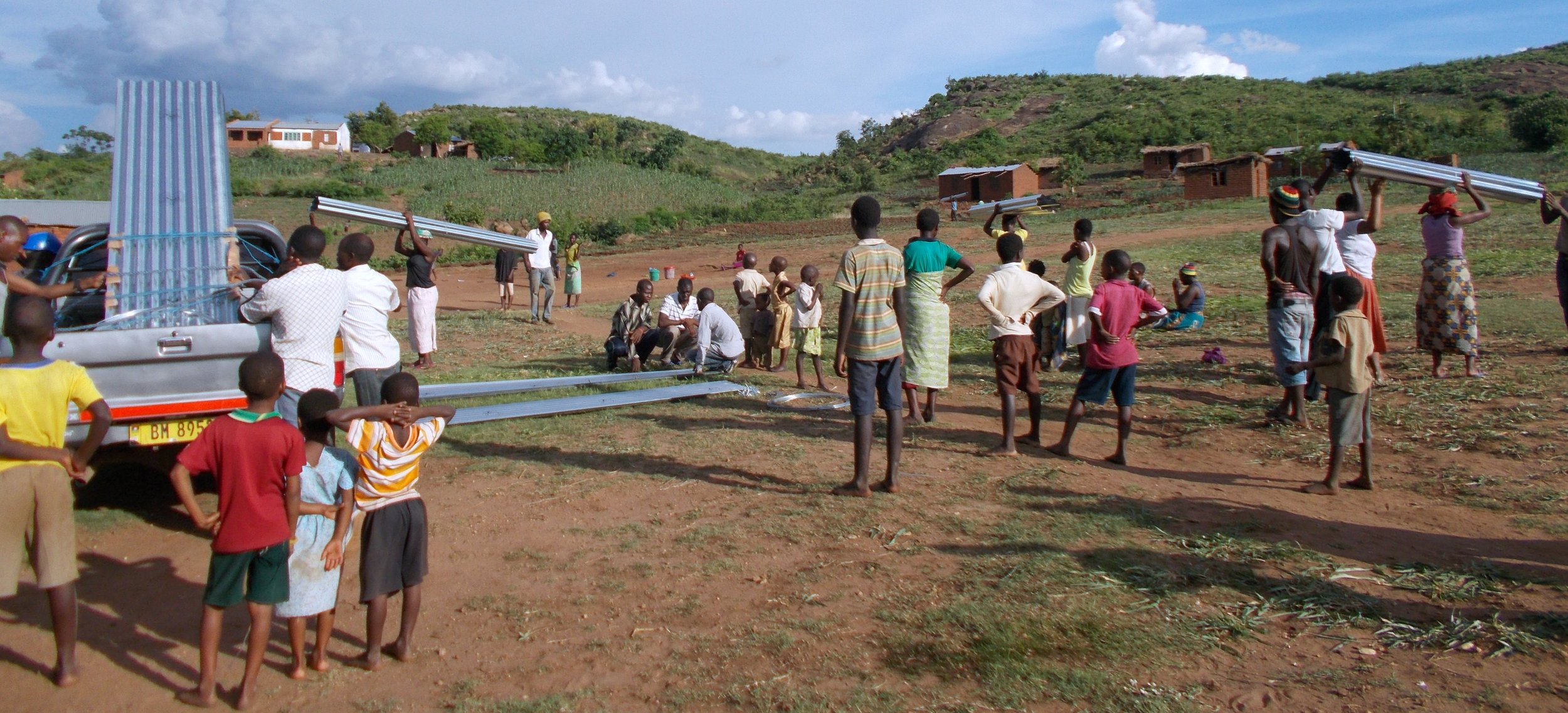
Responding to the emergency needs of communities to get help to where it is needed most.
Cyclone Freddy March 2023
Rose Chinkuyu, 24 year old single mother standing in front of what remains of her house. At the corner, her 3 year old daughter.
ROSE CHINKUYU, REBUILDING AFTER CYCLONE FREDDY
““I cannot have a peaceful sleep anymore as I am always on alert ”
Rose Chinkuyu is 24 and a single mother to her three-year-old daughter whilst also caring for her three younger siblings. She lives in Somba, Rural Blantyre District and is one of our volunteer caregivers at Joshua Kachumbe Community Based Childcare Centre.
Rose has been hit hard by the recent Cyclone Freddy which destroyed her house and a separate bathroom.
Rose’s living conditions prior to this were already compromised and now she is effectively homeless. She is now forced to share one room with the rest of the family and with all their remaining belongings. She lost most essential utensils and clothes and is borrowing equipment from neighbours and returning after use. Food is becoming a challenge, having had their crops destroyed by the Cyclone and with rising food costs at the market. The nights have become very cold due to the damage done to the house and the children are suffering.
Despite the many challenges faced, Rose is still doing her volunteer work as caregiver where she teaches 3 – 6 year-old children in her community and she also visits the surrounding villages to support fellow caregivers on how best to work with children in the current dire circumstances.
Rose is amongst many other people affected by the Cyclone needing assistance.
Please donate to our ongoing cyclone appeal so that we can help rose and others like her to rebuild their homes and live.
Covid-19: In the face of the growing global pandemic, Joshua staff visited our communities, raising awareness of the increased needs for sanitation and providing soap and hand washing stations. Our Community Based Childcare Centres had to temporarily close during this period. Many of the children who use these centres rely on the free daily meal provided and so we prepared ‘take home’ packs of food to see that their nutrition needs were still met.
Cyclone Idai: In 2019, heavy rain in parts of Malawi caused by cyclone Idai resulted in severe flooding. Government statistics recorded a total of 45 deaths and 577. A total of 147,958 households (approximately 739,790 people) were affected with 15,186 households displaced with 187 camps established.
For Joshua communities affected by this, the main problem was that houses were damaged or destroyed leaving many people homeless. The Lower Shire region was the most badly affected but the Blantyre, Mulanje and Zomba areas were also badly hit. Tiyamike (pictured) was totally cut off as all three bridges are down – at least one was a bridge that Joshua had helped to construct. Ten families moved into Mwandika community-based childcare centre as their houses fell down. One of the classrooms at Chigumukiri Secondary School was badly damaged, and many bridges are broken.
We launched an appeal to help raise funds and get families back on their feet. There was the initial provision of plastic sheeting to provide temporary shelter and prevent further damage to homes, followed support towards rebuilding more permanent structures.
Severe food shortages in 2016: Many communities were affected by severe food shortages – an impact of the previous years flooding. Joshua helped with food supplies to vulnerable families, feeding of children through community-based childcare centres and seed packs.
Flooding in 2015: Joshua communities were badly affected by the heavy rains and cyclone in January 2015, declared a national disaster by the Malawian government. Many families sought refuge in Joshua buildings. Our response addressed the immediate needs on the ground but also sought to minimise longer-term hazards faced by vulnerable families. Blankets, food, clothing, plastic sheeting and sanitation items were distributed. Cassava seedlings and sweet potato vines were given to 1,100 families to increase household food security. We also supported house rebuilding for the most vulnerable families.


